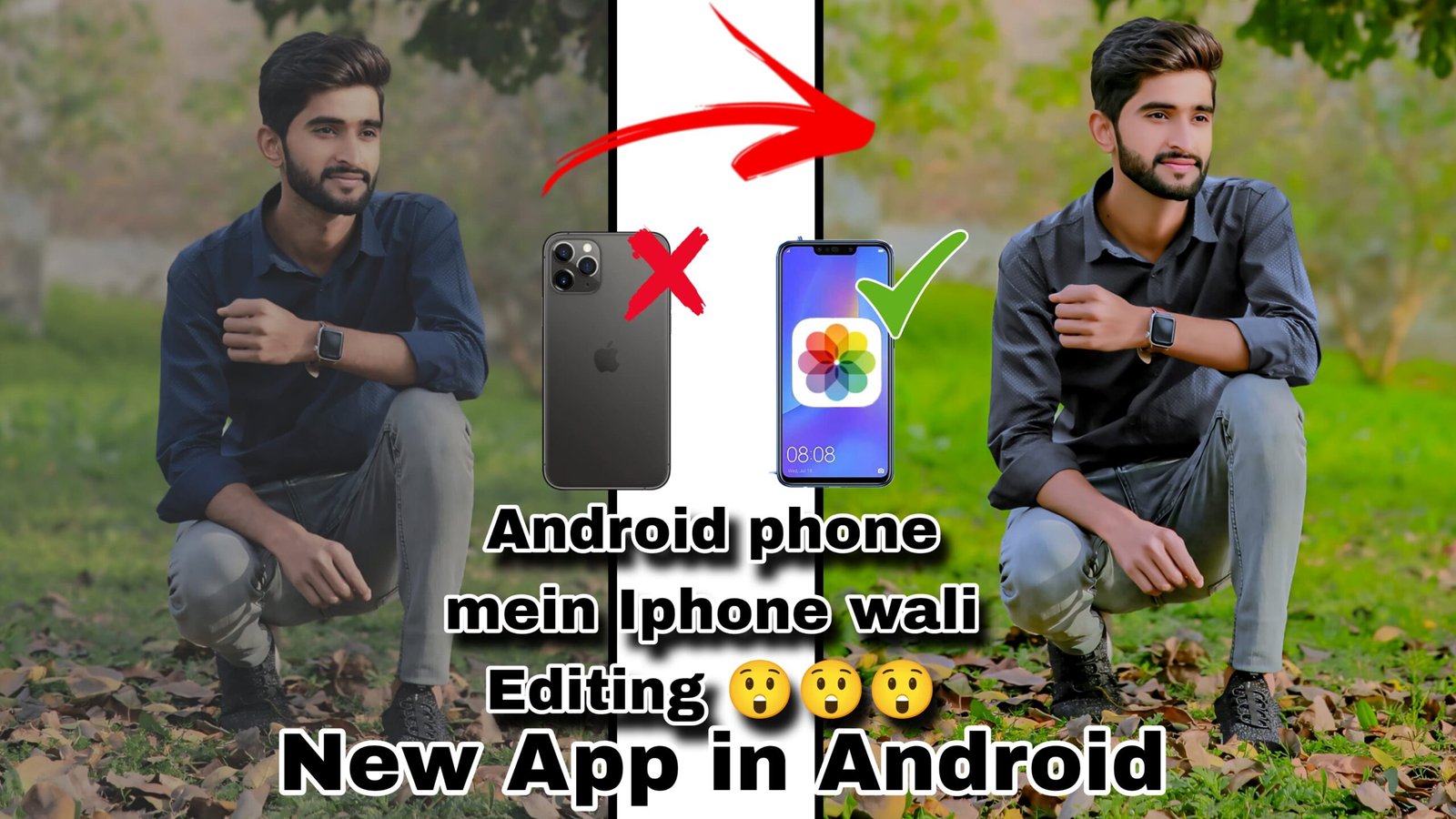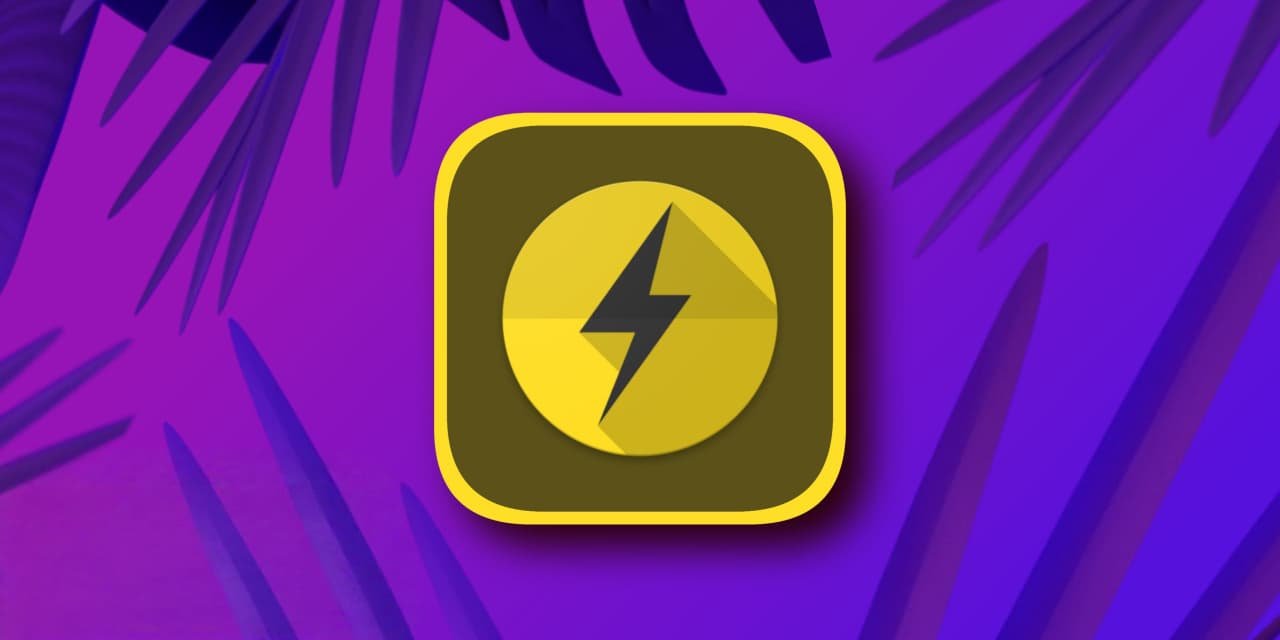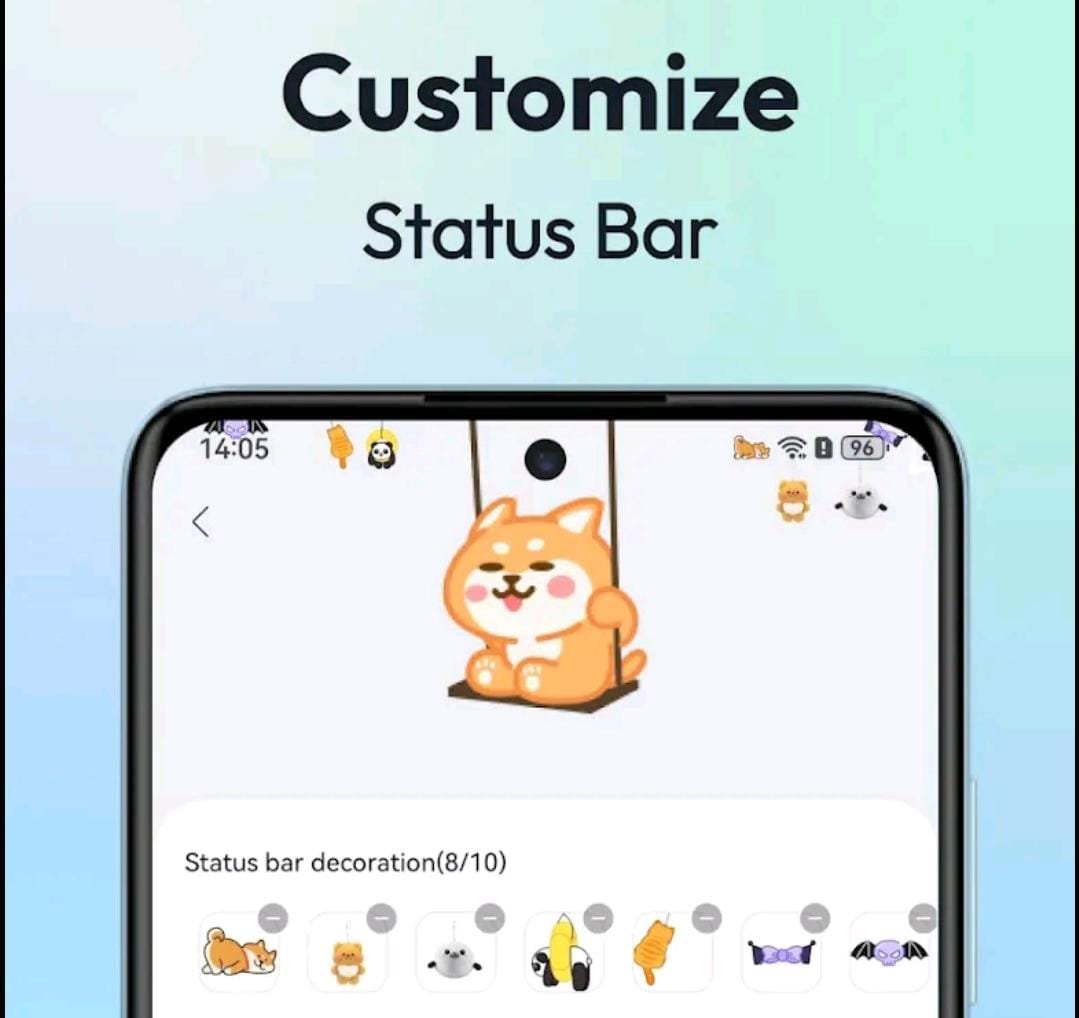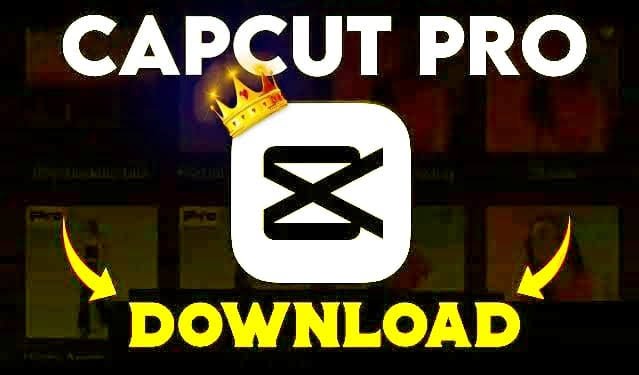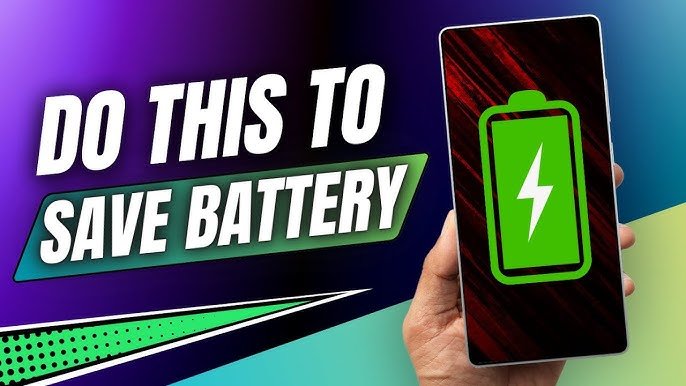The world of photo and video editing has seen a massive evolution with the advent of smartphones. iPhones have long been renowned for their powerful editing capabilities, thanks to their advanced hardware and exclusive software. However, not everyone uses an iPhone, and many Android users seek to achieve similar editing prowess on their devices. This has led to the rise of various apps and techniques that aim to bring iPhone-like editing features to Android smartphones. In this article, we will delve into what iPhone editing on Android entails, how it works, its features, pros and cons, alternatives, and provide a comprehensive conclusion and verdict.
What is iPhone Editing in Android?
iPhone editing in Android refers to using Android apps and techniques that mimic or replicate the photo and video editing capabilities found on iPhones. This includes features such as portrait mode, high-quality filters, advanced color grading, and video stabilization, among others. These apps aim to bridge the gap between the two platforms, allowing Android users to enjoy similar editing tools and effects that iPhone users have access to.
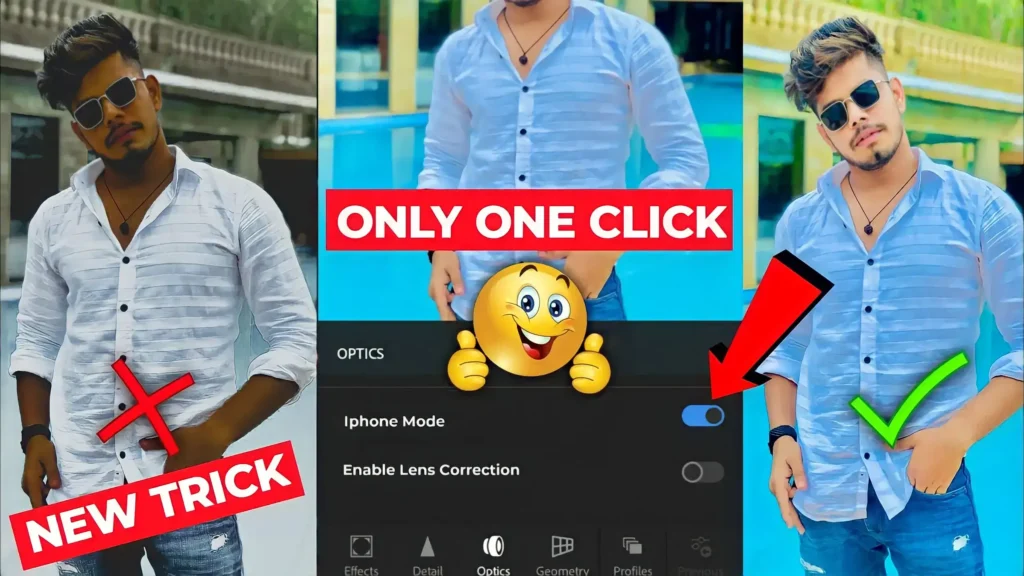
How iPhone Editing in Android Works
1. App Emulation
- Many developers create Android apps that emulate the features and interfaces of popular iPhone editing apps. These apps are designed to provide a similar user experience and produce comparable results.
2. Advanced Algorithms
- Advanced image processing algorithms are used to replicate effects like portrait mode, which blurs the background while keeping the subject in sharp focus. These algorithms utilize depth-sensing technology and AI to achieve the desired results.
3. Cross-Platform Compatibility
- Some apps available on both iOS and Android ensure that users on both platforms have access to the same set of features. These apps are optimized for performance on Android devices to match the editing capabilities of their iOS counterparts.
4. Third-Party Filters and Plugins
- Many Android apps support third-party filters and plugins that enhance their editing capabilities. These plugins often bring unique effects and tools that are inspired by or directly ported from iPhone apps.
5. Cloud-Based Editing
- Cloud-based editing tools allow users to edit their photos and videos on any device, be it iPhone or Android. These tools ensure that users can access the same editing features and presets regardless of the platform.
Features of iPhone Editing in Android
1. Portrait Mode
- Replicates the bokeh effect found in iPhone’s portrait mode, blurring the background while keeping the subject in focus.
2. Advanced Filters
- Offers a variety of high-quality filters for both photos and videos, inspired by those available on iPhones.
3. Color Grading
- Provides tools for advanced color grading, allowing users to adjust the tone, contrast, and color balance of their images and videos.
4. Video Stabilization
- Features video stabilization tools to reduce shakiness and produce smooth, professional-looking videos.
5. Slow Motion and Time-Lapse
- Includes options for creating slow-motion and time-lapse videos, similar to the features available on iPhones.
6. HDR Editing
- Supports High Dynamic Range (HDR) editing, enhancing the details in both the shadows and highlights of an image.
7. AI-Powered Enhancements
- Utilizes AI to automatically enhance photos and videos, adjusting settings like brightness, contrast, and saturation for optimal results.
8. Manual Controls
- Provides manual controls for adjusting various aspects of photo and video editing, such as exposure, white balance, and focus.
9. Face Recognition
- Implements face recognition technology to apply specific edits and effects to detected faces in photos and videos.
10. Cloud Syncing
- Allows users to sync their edits across devices using cloud storage, ensuring they can access their projects from any platform.
Pros of iPhone Editing in Android
| Pros | Description |
|---|---|
| Cost-Effective | Many Android apps are free or cost significantly less than professional iPhone editing software. |
| Accessibility | Allows Android users to access iPhone-like editing features without needing to switch devices. |
| Versatility | Provides a wide range of editing tools and effects, catering to different editing needs and styles. |
| Innovation | Encourages innovation among developers to create high-quality editing tools for Android. |
| User-Friendly | Many apps are designed with user-friendly interfaces, making advanced editing accessible to beginners. |
| Regular Updates | Many editing apps receive regular updates that add new features and improve performance. |
| Customization | Offers extensive customization options, allowing users to fine-tune their edits to their liking. |
| Integration | Can be integrated with other popular apps and services for a seamless editing workflow. |
| Community Support | Large communities and forums offer support, tutorials, and tips for using these apps effectively. |
| No Platform Restriction | Provides high-quality editing tools to users regardless of their choice of smartphone platform. |
Cons of iPhone Editing in Android
| Cons | Description |
|---|---|
| Quality Variability | The quality of Android apps can vary widely, with some not matching the performance of their iPhone counterparts. |
| Hardware Limitations | Some Android devices may lack the hardware capabilities to fully utilize advanced editing features. |
| Learning Curve | Advanced editing tools can have a steep learning curve for beginners. |
| Compatibility Issues | Not all editing apps are compatible with every Android device, leading to potential usability issues. |
| Battery Consumption | Intensive editing tasks can drain the battery quickly on some Android devices. |
| Storage Requirements | High-quality editing apps and their projects can take up significant storage space. |
| Privacy Concerns | Some free apps may have privacy concerns, such as data collection and usage policies. |
| In-App Purchases | Many apps offer advanced features only through in-app purchases, which can add up over time. |
| Performance Variability | Performance can vary depending on the device’s processing power and available RAM. |
| Dependency on Updates | Reliance on regular updates for new features and bug fixes, which may not always be timely. |
iPhone Editing in Android Alternatives
| Alternative | Description | Platform | Pricing |
|---|---|---|---|
| Adobe Lightroom | Powerful photo editing tool with advanced features and cross-platform compatibility. | Android, iOS | Free, Paid Options |
| Snapseed | A versatile photo editing app developed by Google, offering a range of professional editing tools. | Android, iOS | Free |
| VSCO | Popular for its high-quality filters and editing tools, suitable for both photos and videos. | Android, iOS | Free, Paid Options |
| PicsArt | Comprehensive photo and video editing app with a vast array of tools and effects. | Android, iOS | Free, Paid Options |
| FilmoraGo | User-friendly video editor with a wide range of features, including effects and transitions. | Android, iOS | Free, Paid Options |
| KineMaster | Professional-grade video editing app with support for multiple layers and advanced editing tools. | Android, iOS | Free, Paid Options |
| Canva | Graphic design tool that also offers robust photo and video editing features. | Android, iOS | Free, Paid Options |
| InShot | Easy-to-use video editor with powerful tools and effects, ideal for social media content creation. | Android, iOS | Free, Paid Options |
| Pixlr | Photo editor with a range of effects, overlays, and filters, suitable for both beginners and professionals. | Android, iOS | Free, Paid Options |
| LumaFusion | Professional video editing app available on iOS, known for its powerful features and user-friendly interface. | iOS | Paid |
Conclusion and Verdict iPhone Editing in Android
iPhone editing on Android has become increasingly feasible with the development of sophisticated apps and tools that replicate the editing capabilities found on iPhones. These apps offer Android users access to advanced features like portrait mode, high-quality filters, and video stabilization, bridging the gap between the two platforms. While there are some limitations, such as hardware restrictions and the variability in app quality, the overall benefits of these tools make them a valuable addition to any Android user’s editing arsenal.
The wide range of available apps ensures that users can find tools that meet their specific needs and preferences, whether they are beginners or experienced editors. However, it’s important to carefully evaluate each app’s features, compatibility, and pricing to choose the best option for your editing requirements.
FAQs iPhone Editing in Android
1. Can Android phones achieve the same editing quality as iPhones?
- While Android phones can achieve similar editing quality, the results may vary depending on the app used and the device’s hardware capabilities.
2. Are there free apps for iPhone-like editing on Android?
- Yes, many free apps offer advanced editing features on Android, such as Snapseed, VSCO, and PicsArt.
